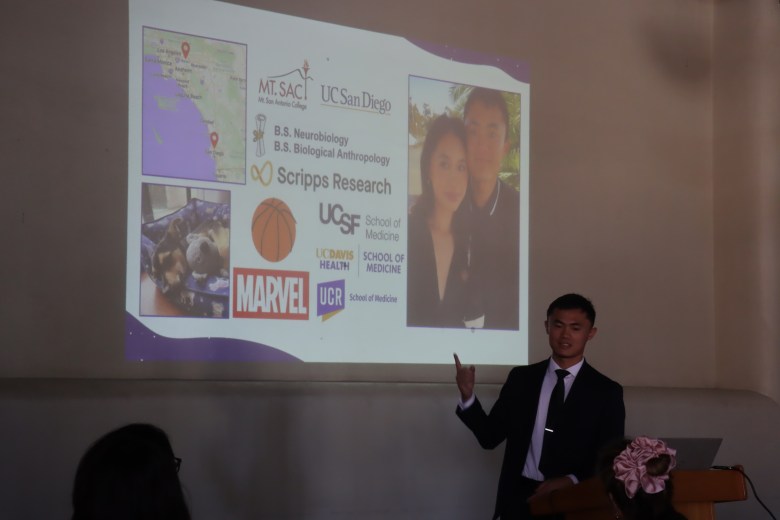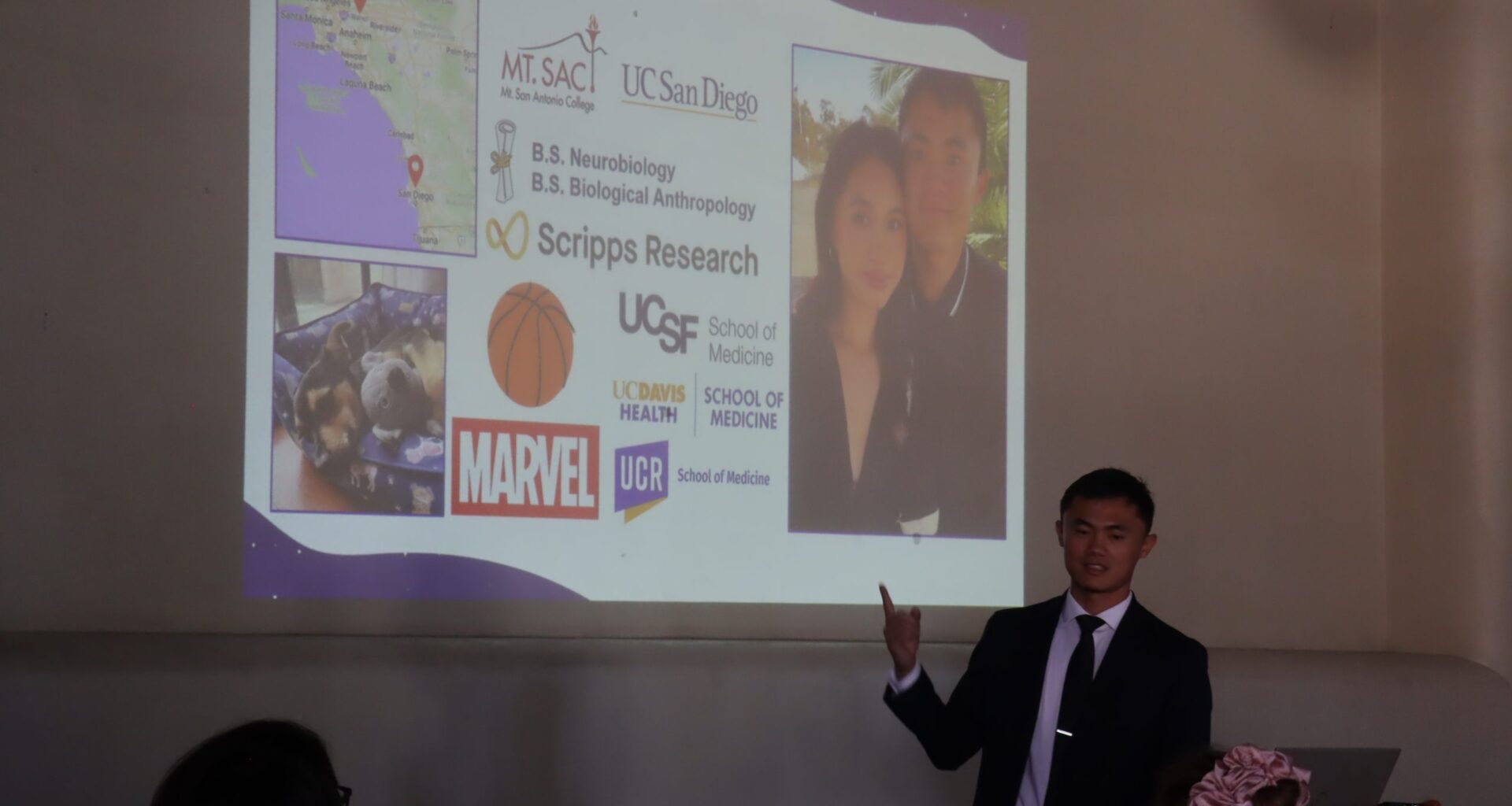 Edward Huang of Mentoring Autistic Minds speaks at the 2025 Minds Conference. (Photo by Mary Princess Redublado)
Edward Huang of Mentoring Autistic Minds speaks at the 2025 Minds Conference. (Photo by Mary Princess Redublado)
Mentoring Autistic Minds, a locally-based nonprofit pushing for a neurodiversity-affirming country, held a conference over the weekend to discuss the future of neurodiversity and neurodiversity-affirming care.
The conference, which was at Balboa Park Club, hosted autistic and non-autistic minds alike from a variety of organizations with neurodiversity-friendly pasts. Neurodivergent individuals shared their experiences, and academic researchers shared their findings and ways to provide better affirming care.
“Because neurodiversity is in the news again. It is now more important than ever in recent history to share the perspectives of neurodivergent individuals. In addition, it’s more important than ever to share research about neurodiversity-affirming care,” Mentoring Autistic Minds wrote on Instagram, explaining the reason behind the conference’s theme.
Mentoring Autistic Minds was founded in 2022 by David Rivera, a current undergraduate student at the University of California, Berkeley. Rivera is majoring in political science, hoping to become a lawyer, so that he can create a law firm that defends neurodivergent students.
The first Minds Conference was in 2024, but Mentoring Autistic Minds hosts regular events regularly, including group meetings, dinner events and workshops.
Saturday’s conference speakers included Teresa Girolamo, an assistant professor at San Diego State University; Martin Slyngstad, the founder of Spire Autism; Edward Huang from Mentoring Autistic Minds; Elena Tiffany from DisabilityVoices United; Dr. Lawrence Fung from Stanford; and Andrea Davis, a psychologist on the clinical advisory board of Positive Development.
“The conference addresses a pressing need to bring researchers, families, and community members together. Presenting at the conference – especially as an autism researcher with an autism diagnosis – was an honor,” Girolamo wrote in a statement.
Speeches dove into what it’s like as a neurodivergent individual, with Huang sharing his story as an autistic premed student. Slyngstad advocated moving away from care that suppresses autistic behavior rather than meeting them.
Researchers also shared their findings. Fung explored the unique strengths, rather than weaknesses, neurodivergent minds bring to the table and Girolamo discussed the importance of following the lead of autistic people and families.
United States Rep. Scott Peters also delivered virtual remarks during the conference.
